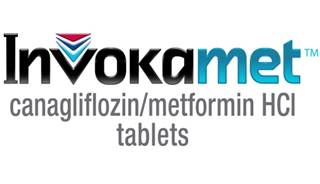People with diabetes who use Invokamet can develop ketoacidosis, a life-threatening side effect in which the blood becomes too acidic. The manufacturer of Invokamet is already facing lawsuits from people who were injured by this side effect.
What You Can Do & How We Can Help
The Schmidt Firm, PLLC is currently accepting Invokamet induced injury cases in all 50 states. If you or somebody you know has been diagnosed with ketoacidosis, you should contact our lawyers immediately for a free case consultation. Please use the form below to contact our Defective Drug Litigation Group or call toll free 24 hours a day at (866) 920-0753.
How Does Invokamet Work?
Invokamet is a type-2 diabetes medication that combines metformin with canaglifozin, a drug in the SGLT2 inhibitor class. It helps prevent high blood-sugar levels by forcing the kidneys to excrete glucose in urine.
What is the Problem?
The FDA ordered Janssen Pharmaceuticals to add stronger warnings about ketoacidosis to the label on Invokamet in December 2015. The agency was concerned about 73 reports of ketoacidosis in patients on SGLT2 inhibitors as of May 2015. The FDA has received many more reports of acidosis since those warnings were issued. Over 150 cases were linked to canagliflozin in 2015, according to a report by the Institute for Safe Medication Practices (ISMP).
Invokamet “Black Box” Warning
Invokamet has a “Black Box” warning about lactic acidosis, a side effect of metformin. It is more common in people with liver disease, renal disease, or heavy alcohol ingestion.
Diabetic Acidosis Lawsuits
Janssen Pharmaceuticals is facing several lawsuits (PDF) from people who took canagliflozin (Invokana) and developed ketoacidosis. These lawsuits accuse the drug-maker of negligence:
- Failing to warn patients about ketoacidosis
- Concealing their knowledge about the risk
- Manufacturing an unsafe medication
- Inadequately testing the medication for side effects
- Marketing it for unapproved (“off-label”) purposes
What is Diabetic Ketoacidosis?
Diabetic ketoacidosis (DKA) causes the blood to become too acidic. It occurs when the body is forced to burn fat for energy because there is not enough insulin to use blood-sugar. This increases levels of toxic blood-acids called ketones. As ketone levels increase, you may notice the following symptoms:
- Nausea
- Vomiting
- Abdominal pain
- Tiredness
- Confusion
- Trouble breathing
- Unconsciousness
What Should I Do?
Patients on Invokamet should closely monitor their blood-sugar and ketone levels. Ketoacidosis can occur even when blood-sugar levels are only mildly elevated. You can check for ketones in your urine at home with test strips.
How is Ketoacidosis Treated?
Ketoacidosis is an emergency condition that can occur in less than 24 hours. Hospitalization is usually necessary to receive treatment, including intravenous (IV) fluids and electrolytes, insulin to control blood-sugar levels, and minerals like potassium. With prompt treatment, most people go home in a couple days and suffer no long-term complications.
Do I have an Invokamet Lawsuit?
The Schmidt Firm, PLLC is currently accepting Invokamet induced injury cases in all 50 states. If you or somebody you know has been diagnosed with ketoacidosis, you should contact our lawyers immediately for a free case consultation. Please use the form below to contact our Defective Drug Litigation Group or call toll free 24 hours a day at (866) 920-0753.
Attention Lawyers: We consider a referral from another law firm to be one of the greatest compliments. If your firm is interested in referring us a case or for us to send you a list of previous award judgments and/or average referral fees, please visit the Lawyer Referral section of our website.


 The Schmidt Firm, PLLC has been recognized as one of the nation’s leading plaintiffs' law firms and handles cases in all 50 states. We are very proud of our legal achievements, but equally self-respecting of our firm's reputation for providing personal attention to each and every client we represent.
The Schmidt Firm, PLLC has been recognized as one of the nation’s leading plaintiffs' law firms and handles cases in all 50 states. We are very proud of our legal achievements, but equally self-respecting of our firm's reputation for providing personal attention to each and every client we represent.

